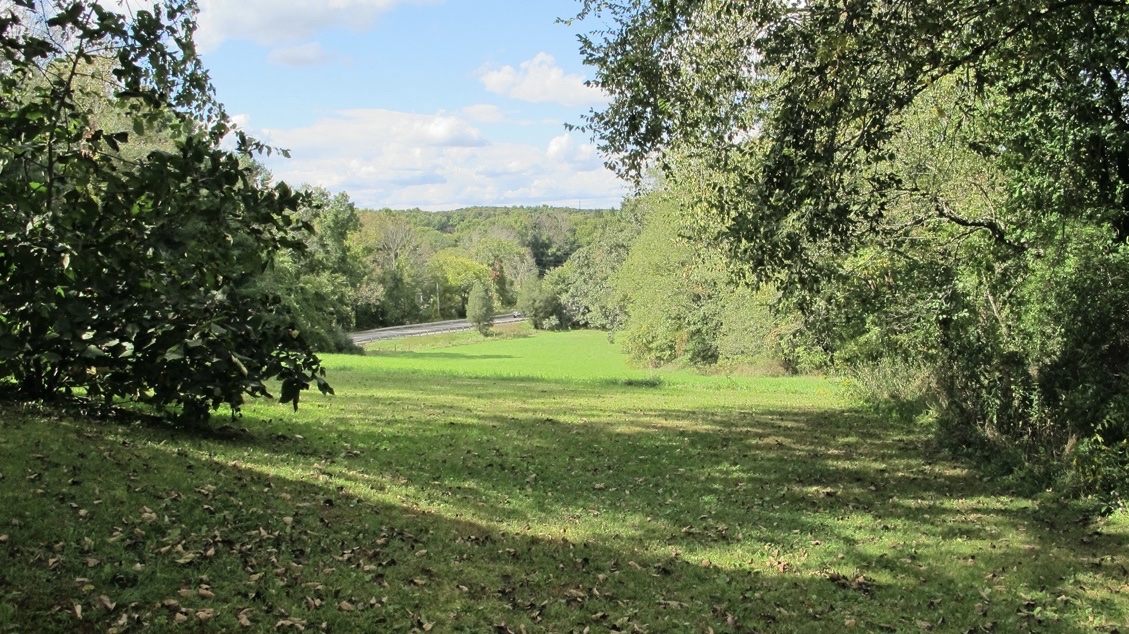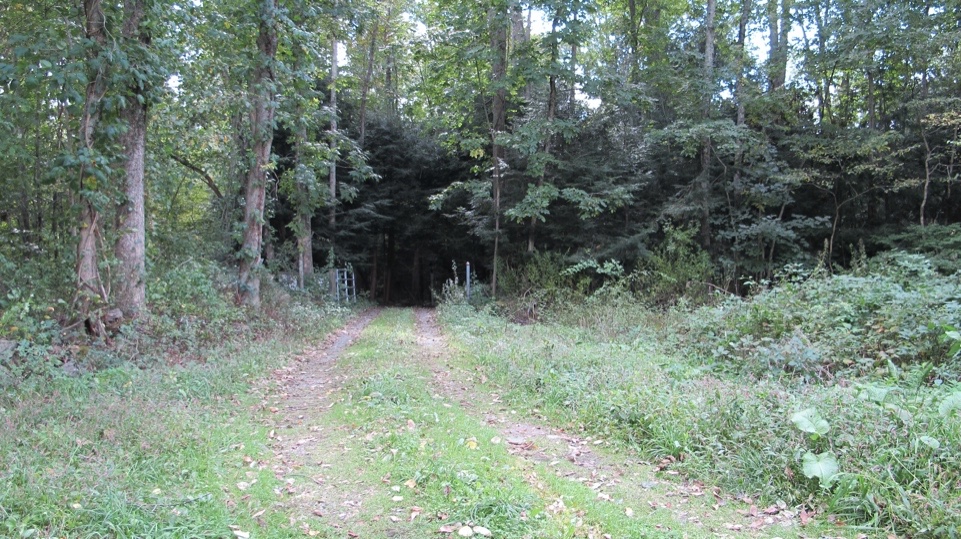As a kid, I often hid on “my” rock atop a forested hill overlooking my home and the surrounding farmland. I would spy on the stick figures below, my father and brothers hard at work on the farm. I don’t think anyone could see me. At least that’s what I chose to believe. Perched on my rock, I daydreamed about having friends, of learning more about the world outside of the farm, of having a different kind of family. The things little kids think about.
Sometimes I imagined I heard a faint voice wafting up the hill “Where’s Gussie?” Where’s Gussie indeed! The messy chaos of life in a large family on a farm was not my cup ‘o tea. I had a knack for disappearing when there was work to be done. Some kids have forts, or treehouses or a special nook in the yard. I had my rock at the top of a hill. I would quietly let myself out of the house, walk around behind the barn and through a gate to a dirt trail which led up the hill to my retreat.
My story spans a journey of 100 years. From my lonely time as a child of hardworking farmers living on the outskirts of a tiny village in rural Connecticut - to marriage, political activist, mother, teacher, counselor, therapist, grandmother, great-grandmother, widow, living in comfortable style in the hub of Southern California as far from farm life as you can get.
I reach far back into my memory to tell my story. The things I remember happening. Stories I remember being told. I string bits of memories together and try to make sense of them. I know memory is fickle, but memories of our experiences and memories of stories heard - taken together, form the big picture. They become our history.
In my 100 years, there have been hardships and joys. Missteps and success. Grit and determination. Love, good friends, playing bridge, bicycling, water skiing and travel adventures. Loss and sadness. And recently, a lot of hot chocolate.
Globally, my 100 years have spanned two World Wars, two Great Depressions, the Korean War, the Vietnam war, formation of Israel, ongoing war in the Middle East, the continuing fight for peace, nuclear disarmament, civil rights, racial justice, and equity. From President #29: Warren Harding to President #46: Joe Biden. With the assassination of President John F. Kennedy somewhere in the middle.
During my 100 years, computers have become embedded in the fabric of daily life. From nowhere to everywhere. Smart houses, smart cars, smart phones. I’m thankful for many of the advances in technology and medicine. I’m not sure any of our smart devices have made us smarter as humans. Bear witness to climate change with crazy storms, a hotter earth, out of control wildfires, and a global pandemic.
Looking back across the century, the changes and events seem huge. Did I realize the historical significance of the changes as I lived through them? Probably not so much. In hindsight though, the evolution of technology, medicine, and immediate knowledge of the world during my lifetime seems incredible.
Born on the farm
I was born on a crisp fall day, October 17, 1921, in the 100-year-old, two-story farmhouse my family called home. (Until it was destroyed by a hurricane in 1938). I was the sixth of eight children. Esther (1912), Celia (1914), Evelyn (1916), Isaac (1918), Abraham (1920). Me (1921), Joseph (1923), and Jacob (1930). I spent much of my life until I graduated from college on that farm.
Farm life interrupted by candy
Farm life was halted briefly when I was one or two years old when my father decided to move the family to Brooklyn where he managed a candy store. What a dream for me to spend my days in the candy store while mom and dad doled out bags full of sweet treats. I have a clear memory of reaching into one of the bins and trying to grab a handful of candy. What kid wouldn’t? A big arm swooped in to wrench my hand away. So close! Does this explain my sweet tooth today? Candy is a food!
I remember purposefully pushing a baby carriage with a doll baby around the neighborhood in Brooklyn. My mother later told me that someone had seen me and offered to buy me for 50 cents. Surely, I was worth more than that – even back then!
After a year or two in Brooklyn, my father uprooted our family again. We moved back to the farm in Preston. Sounds a little strange now but there was probably a logical reason for the moves.
Back to the farm
The farmhouse was constructed of bricks with very little mortar. There must have been a shortage of mortar back in the 1820’s when the house was built. Or just plain old shoddy construction. The roof was covered with wood shakes, the windows were plain single-glazed glass, and linoleum covered the wood floors. There were two entrances into the house – a side door and a front door.
The kitchen was large with a family sized table used for eating, doing homework, and playing cards. Abe, Ike, and I had many a Pinocle game around the kitchen table. My brothers won most of the time. I was way younger than they were, and they didn’t go easy on me.
The kitchen was heated by a wood-burning stove, later replaced by an oil-burning stove. The kitchen was the only room in the house with heat. The downside of being in the kitchen was the plethora of cockroaches. Those little buggers will survive us all and they drove my mother nuts.
My parents had a bedroom on the ground floor. Worn narrow and steep wooden steps led to the unheated second story where rest of the family slept. Ceil and Esther shared one room. Abe and Ike shared another room. I have no memory of where Joe, Evelyn or Jake slept. I was lucky to have my own room. My bed had a fluffy, warm, feather-filled comforter which may have been brought from the old country. There was a tiny room at the head of the stairs where I kept my baby buggy and doll. The room also served as an extra storeroom.
The toilet was in an outhouse. One did one’s business as quickly as possible in the winter. We had an artesian well on the property and there was running water in the house. I don’t remember how we got hot water.
We had a yard with a lawn in the back of the house. My brothers and I would play baseball when the weather allowed. We may have put up a net to play our own version of volleyball. I enjoyed the activity even though I wasn’t good at any of the games.
If you went out the side door of the house, you could go out beyond the fence which sloped down the hill. In the fall, we would pile the leaves into big mounds just outside the fence and run and jump into the mounds. It’s a wonder no one ever got hurt.
There was an old swimming hole not too far from the house, although it wasn’t on our property. We would put our suits on under our clothes and hike up to the water. It really was just a spring where you could dunk yourself and you could sit on logs and dangle your legs in the water. It wasn’t deep enough to swim but we had fun and it cooled us off in the hot, humid summers. There were blueberry bushes on the road to the spring, so we’d often bring our containers and pick the blueberries on the way. Sometimes the blueberries made it back home.
Our house was perched on a rise overlooking two highways. One highway led to Poquetanuck, a village in Preston; the other highway connected Norwich, Connecticut with Westerly, Rhode Island. Major noise one would think. But in the 1920’s, there wasn’t the traffic we know today. Model A and Model T Fords, sleek Model A and Model J Duesenberg’s, the Chrysler 6, and others, all sped along at 15-20 miles per hour. In fact, Connecticut was the first state to impose a speed limit all the way back in 1901. 12mph in cities and 15mph on the highways.

To reach the highway, my father drove his Essex about ½ mile down a pitted, rocky road. The road was great for sledding during the winter but hard on vehicles. That same Essex later broke down and was permanently parked under a grape arbor to become a playhouse for the kids.

Across the highway was a stretch of pasture where the dairy cows grazed. Up early to milk the cows in the barn behind the house, the boys would then shepherd the cows across the highway for a day of chewing the lush grass. (The cows chewed, not the boys)
Beyond the barn, was a plot of land used for growing vegetables. Some of the vegetables were used at home to feed the family. I got paid a nickel a row to weed the garden. I would weed enough for a nickel and then stop. I mean, who needed more than a nickel? The rows of vegetables seemed endlessly long. We grew sweet corn, tomatoes, radishes, cucumbers, carrots, peas, potatoes. Lots of potatoes. Which we ate - mashed, baked, scalloped and every which way.
All the vegetables the family couldn’t eat were sold. My dad did whatever he could to make extra money. We had an apple tree and once, my father set up a press to make hard cider, which he sold, during Prohibition. He got caught and spent a night in jail for his efforts.
There was another tract of land near the house that proved untenable. It was too rocky although my father and his workmen attempted to blow up and remove the rocks. They would set the explosives in cracks in the big rocks and ka-boom. But they never made enough progress to make the land workable. The land was later used as a place for the kids to exercise their sledding and skiing skills. It was lots of fun until I slid into a rock and hurt a finger, which, to this day shows black and blue marks.
Near the house, was a small dugout with a V-shaped roof, possibly a cold-cellar. We never used it for any type of food storage. Perhaps it served as a hiding place for games of hide’n’seek. My memory is vague on that.
A summer cabin was situated beyond the barn. Known as a “summer” cabin because there was no heating which made it completely unsuitable for winter use. Usually, the summer cabin was rented by tenants for a summer. Some of those tenants were a little raunchy.
Life on the farm was not all hard work. I remember mealtimes with the family around the large kitchen table, eating loads of noodle kugel and slurping chicken soup. And by the way, I still love kugel and chicken soup. There were times of joy and laughter when the whole family would pile into the back of the family pick-up truck and head for the beach in New London laden with sandwiches, drinks, and extra clothes.